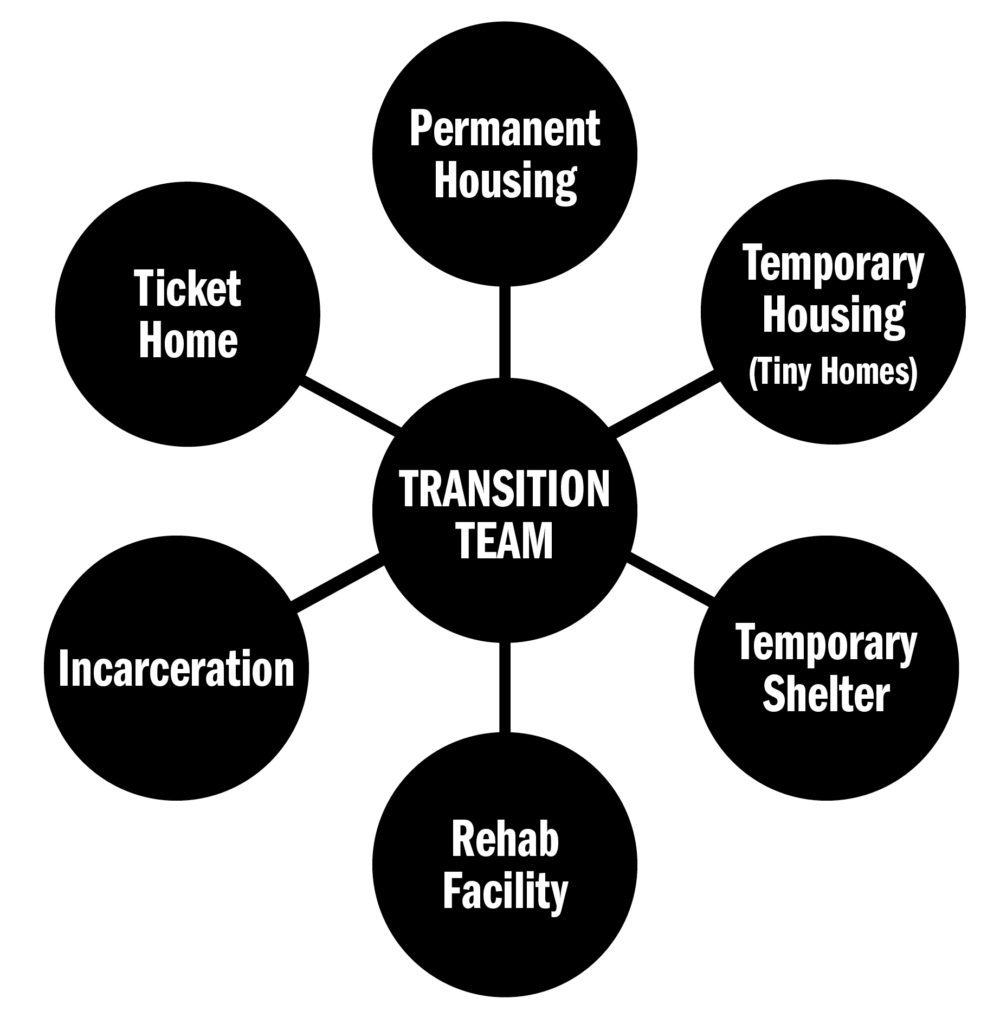By Bill Hoke
A friend said to me the other day there is nothing we can do about the homeless. I bristled and so do you, probably. But consider the half-billion dollars invested in Bremerton’s “revitalization,” and the tens of billions invested in spheres and glittering office buildings across Puget Sound, since the big boom.
A well-known local advocate observed early in the Bremerton revitalization that not one new public restroom, not one new bed and not one new shelter have been added. And in recent months, more and more people can be found sleeping in downtown doorways. It’s getting worse, and here comes Winter again.
And there’s no shortage of handwringing, meetings, summits, community forums and opinions aplenty. Experts write Op-Ed pieces and offer bandaid solutions to a problem that goes to the very heart of our community, who we are and how we care for others. Offering up half-solutions is 100% delusion.
The 1% for the arts in new construction apparently was too burdensome for Kitsap County developers (so it was reduced to one-half percent). Thus, any notion that we tone down our posh new apartments and hotels and infrastructure and allocate a reasonable
amount to really, really address this problem is probably another round of wishful thinking.
Are we making progress? Drive through Seattle, Bremerton, Shelton or Oregon City and decide for yourself. Maybe there’s nothing we can do about the homeless.
We may now return to hangwringing.
Bill Hoke, a retired advertising agency owner, lives in Kitsap County, where he has volunteered in emergency overnight cold-weather shelters. He works with economically disadvantaged entrepreneurs, helped start the Kitsap Suicide Prevention Coalition, has worked with homeless and collaborated with Richard LeMieux and his mind-changing book, ‘Breakfast at Sally’s’. Reach him at hoke@hokeconsulting.com.
Pub. Note: On Veteran’s Day, we received this reply to Bill’s letter from Duane Riedesel, a proud Marine Corps veteran and and veteran of the ad-biz wars, as well.
Dear Bill:
I appreciate your concern and, like you, I would prefer a simple solution to “the problem of homelessness.” However, my perspective is a bit different. I don’t see homelessness as a “problem” that needs to get fixed, but rather the symptom of many “problems” that we in this great country have failed to address for the past several hundred years.
Let’s begin with the inherent racism that gave us slavery for a couple of hundred years and was compounded by segregation, lynching’s, black and white restrooms, hotels, restaurants, restricted seating on trains and buses and residential redlining. We have yet to resolve most of those issues. Add to those racial profiling, police murders, inconsistent sentencing applications based on race and the difficulty of finding jobs for those after incarceration. Oh, and speaking of jobs. Let’s do that.
The mantra, for as long as I can recall, has been, in order to get a good job, one must get an education. But, if you live in an impoverished area because jobs have been shipped overseas in order to line the pockets of those who have pockets in clothes they’ve never even worn, you have a problem. Back in the day, alcohol was the intoxicant of choice to escape the demons of life. Those who can afford it hire attorneys and accountants to protect them from the demons of greed. However, there are far more who cannot afford that luxury and thus resort to chemical escapes from those demons.
If one, in fact, lives in an area in which jobs have disappeared, that means that there will be an inability to fund schools, hire good teachers and provide supplies and textbooks, resulting in substandard educational opportunities. And substandard educational opportunities equal sub-standard jobs which equals substandard housing which equals ghettos, etc.
Each of these problems contribute proportionally to a declining quality of life until one simply gives up and succumbs to the demons of life. And all the while, because we have had many segments of our society who have not believed in a woman’s right to birth control, people will do what people do and add to the population in those communities of competing demons.
At the center of all this demonic stew is greed. Pursuit of personal wealth—at all costs—sounds suspiciously like slavery. Except it has become sanitized and deemed more socially acceptable because it has been—in today’s marketing/PR parlance—re-branded. The result is abject poverty for those who have been disadvantaged by circumstance of birth, genetics, geographic location, governmental policies, religious beliefs and national ideologies.
In order to fix “homelessness” there is so much more that needs to be fixed, beyond the outraged sensibilities of those who have, versus those who have not. The therapeutic salve they continually apply to their egos, in order to feel “good” because they have done something noble in the guise of “helping” those less fortunate and homeless, is temporary and blatantly disingenuous.
Once a year, at the Winter solstice, co-opted by Christian religions a few hundred years ago, the penitent personality underpinnings of many take over and there are massive food and clothing drives to momentarily assuage the guilt that many of them are unable to even recognize as such. They have once again checked a box that would aid in combating homelessness in their communities. They can now be guilt-free and continue bowing to the annual maw of commerce.
On my first business trip to St. Louis in the early ’70s a friend picked me up at Lambert Field and, as we made our way to the hotel, we chatted. I was so engrossed in our conversation that I paid little attention to our surroundings, until he stopped the car and said something to the effect of “Look around you. This is Pruitt-Igoe”. It felt as though I had been dropped into the middle of a WWII European town that had been bombed repeatedly. It was a shock to the roots of my country-bumpkin, white-bred heritage. I’ve enclosed a link that more adequately explains the hopes, dreams and ultimate failure of Pruitt-Igoe, a seminal effort to improve the lot of impoverished citizens, many of whom we now refer to as “homeless.” It was an urban- planning, low-income-housing failure.
https://en.wikipedia.org/wiki/Pruitt–Igoe#Design_and_construction
It’s time to stop finger-in-the-dike solutions to homelessness. It’s past the time to confront the contributory calamities that result in “homelessness.” People are more than just homeless. They are desperate. And their country has failed so many of them. We have failed to provide consistent high-quality educational opportunities to ALL communities. We have failed to stop the flow of job opportunities to countries who can and do pay far less than a livable wage in this country. We have failed to equitably apply the law of the land across all populations of citizens. We have failed to reform the healthcare system to provide adequate healthcare for all our citizens. We have failed to understand the human consequences of wars and the devastating effects they have on our veterans and their families, beyond the last shot fired, the last bomb dropped and the last drone strike.
What we have done is create the greatest socio-economic divide this country has ever experienced. It’s a cancer that has continued to metastasize to the White House, the House of Representatives, the Senate and the judicial system. The only cure in sight is one that is administered by fewer than two-thirds of our citizens during a presidential election year. So long as “Big Brother” keeps enough people provided with minimal essential needs, the citizenry will be greedily complacent and content.
The “I’ve got mine, too bad you haven’t got yours and I don’t give a shit” attitude must change before there will ever be a legitimate concern about solving the issues that contribute to homelessness. WE must begin asking ourselves, “When is enough wealth enough”? Is a multi-million-dollar salary with multi-million dollar bonuses enough? How many houses is too many houses to own? How many expensive cars is too many cars to own? How many boats or super-yachts or airplanes are enough? How much of anything is a requirement for personal happiness?
There is much useless handwringing yet to be done before it finally hits home with one of the “haves” who becomes a “have not”. How many tents will that formerly privileged person then need to be happy as one now homeless?
On this Veteran’s Day weekend, let us begin to closely examine the costs of war, not the profits of war. Let us begin that dialogue with the goal of not spending money on war but on taking care of —and not blaming—our citizens for their homelessness that was hundreds of years—and countless mistakes—in the making.
VOTE!!! Peace my friend.
Duane
Homeless ‘Transition Team?’
By Larry Coffman
While Seattle Mayor Jenny Durkan and the City Council squabble over how to spend $100+ million next year on the homeless crisis, here’s a thought regarding one of the major sticking points—the Navigation Team. Some council members question whether that team has become nothing more than a cleanup crew, when its original purpose was to assist the homeless in transitioning to available services that can get them off the streets.
One easy change would be to rename the Navigation Team the Transition Team, with a requirement to take some specific action, in each individual case, toward getting that homeless person off the streets, rather than just confiscating his/her tent and other belongings and allowing them to move elsewhere in the city. And if money is allocated to those tiny homes, there should be a NO DRUG OR ALCOHOL policy for those who get to live there temporarily.
There’s also the opportunity to redirect the money in the city budget now earmarked for a Regional Homelessness Authority and use it to establish the kind of 24/7 “Action Central” facility in Seattle called for in the series of posts below. It would serve as a national model and develop solutions that could be shared with all other entities dealing with the homeless problem. The certain availability of funding and technical assistance from Amazon, Microsoft and Google makes this unique opportunity a “no brainer.”
 The graphic at right shows the options for getting a homeless person off the streets, thus, stopping the present revolving door that has them simply moving to another location. That, of course, implies having a legal means to track each individual, which seems very basic, if we ever hope to solve the problem.
The graphic at right shows the options for getting a homeless person off the streets, thus, stopping the present revolving door that has them simply moving to another location. That, of course, implies having a legal means to track each individual, which seems very basic, if we ever hope to solve the problem.
The slight decline in the number of unsheltered homeless this year, compared with 2018, is negated by the sharp rise in crime downtown, especially in the area of the King County Courthouse—of all places. A recent survey on KOMO-TV, which brought the homeless crisis into sharp focus with its Seattle Is Dying documentary, showed that 75% of respondents were afraid to come downtown.
Now, more than ever, this situation begs for the 24/7 monitoring and followup that can best be achieved by the kind of 24/7 facility discussed in detail in these prior posts.
P.S. Here are links to prior posts in the fantastical Action Central series: Mayor Durkan’s Address; Homeless Central, a First Step; background on Action (nee Homeless) Central director John Shannon; his distinction between Homelessness and Lawlessness; The Stakeholders; The Perfect Site!; ‘Jigsaw Puzzle’; Reaching For Reality; Town Hall Takeaways; Eric’s National Exposure; ‘Head Chef’; ‘Our Mission Control’; The No. 1 Deliverable—Synergy!; Proactive Vs. Passive; Homeless/Lawless Quiz Results+m Call For A Homeless ‘Czar.’ ‘Hooverville’…’Nickelsville’…‘Seattleville.’ and Where’s The Homeless ‘Contractor?’






